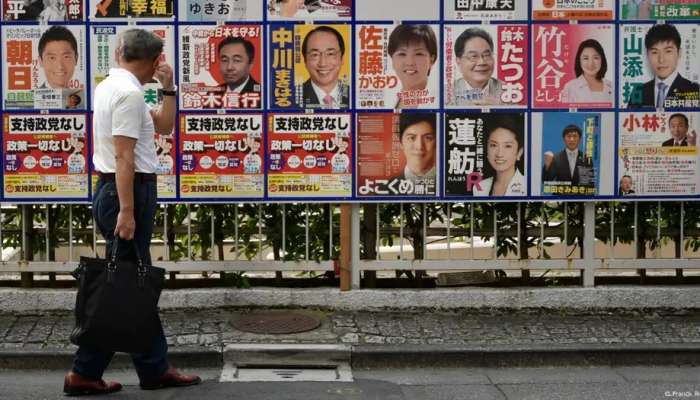
Tokyo: Voters in Japan headed to the polls on Sunday for parliamentary elections that will determine the next prime minister.
Polling ahead of the vote suggested that the ruling conservative Liberal Democratic Party (LDP) — which has dominated Japanese politics for decades — may fall short of the majority required to govern.
"We want to start afresh as a fair, just and sincere party, and seek your mandate," Prime Minister Shigeru Ishiba told supporters at a rally on Saturday.
The second-biggest party is the Constitutional Democratic Party, led by popular former Prime Minister Toshihiko Noda.
"The LDP's politics is all about quickly implementing policies for those who give them loads of cash," Noda told supporters on Saturday. "But those in vulnerable positions, who can't offer cash, have been ignored."
Snap election follows slush fund scandal
Ishiba called the snap election after the former defense minister was narrowly selected to lead the LDP in September.
Former Prime Minister Fumio Kishida stood down in August, after his government was rocked by a number of scandals.
In late 2023, it was revealed that dozens of LDP politicians had for years been building up secret slush funds to the tune of 600 million yen ($4.1 million, €3.7 million).
Kishida dismissed four members of his Cabinet, and a series of arrests of parliamentary aides and accountants were made as the full scale of the scandal unfolded.
However, voters in the world's fourth-largest economy have continued to be dismayed by the fallout from the slush fund scandal and have been rankled by rising prices in the country.
Some polls have suggested that the LDP and its coalition partner Komeito might struggle to get the 233 lower house seats needed for a majority.
With Ishiba having set this threshold as his main objective, missing it would undermine his position in the LDP and could require the ruling party to find other coalition partners or lead a minority government.